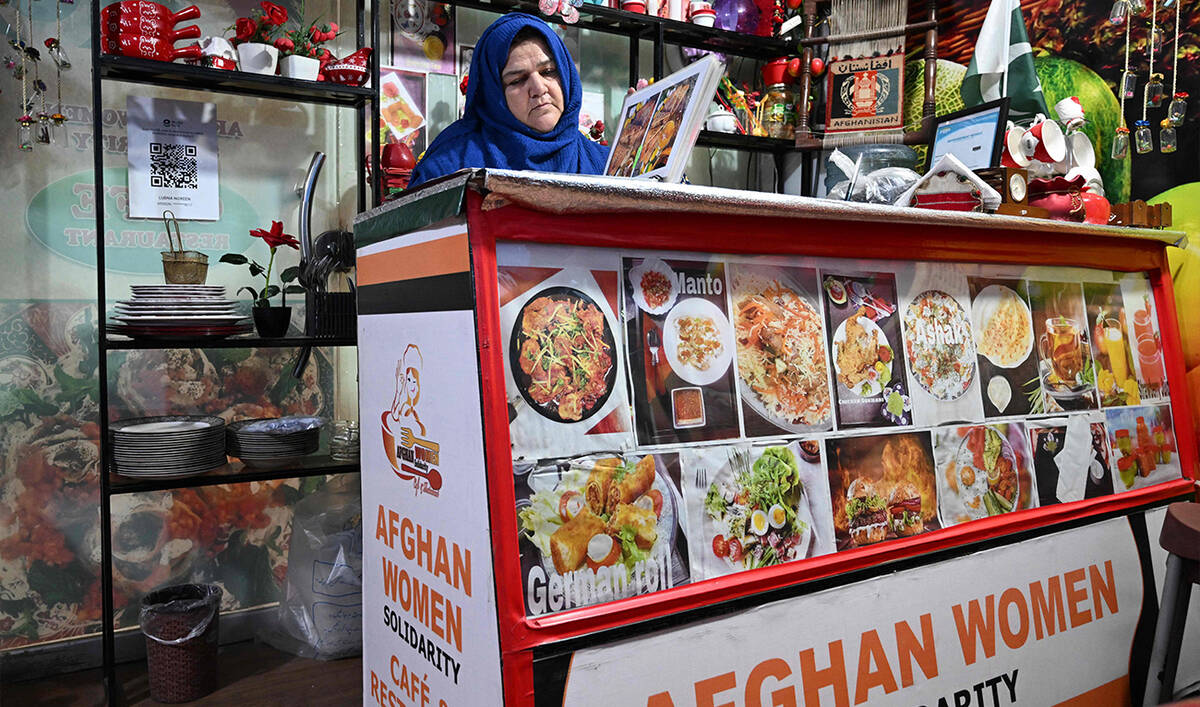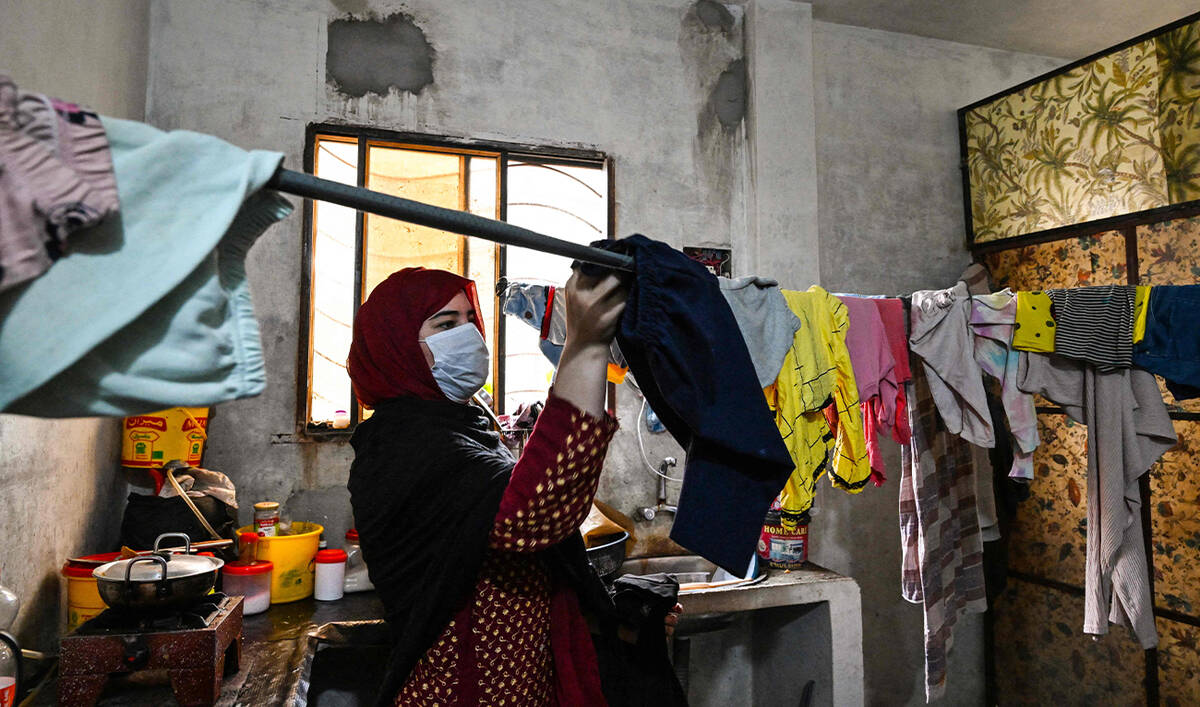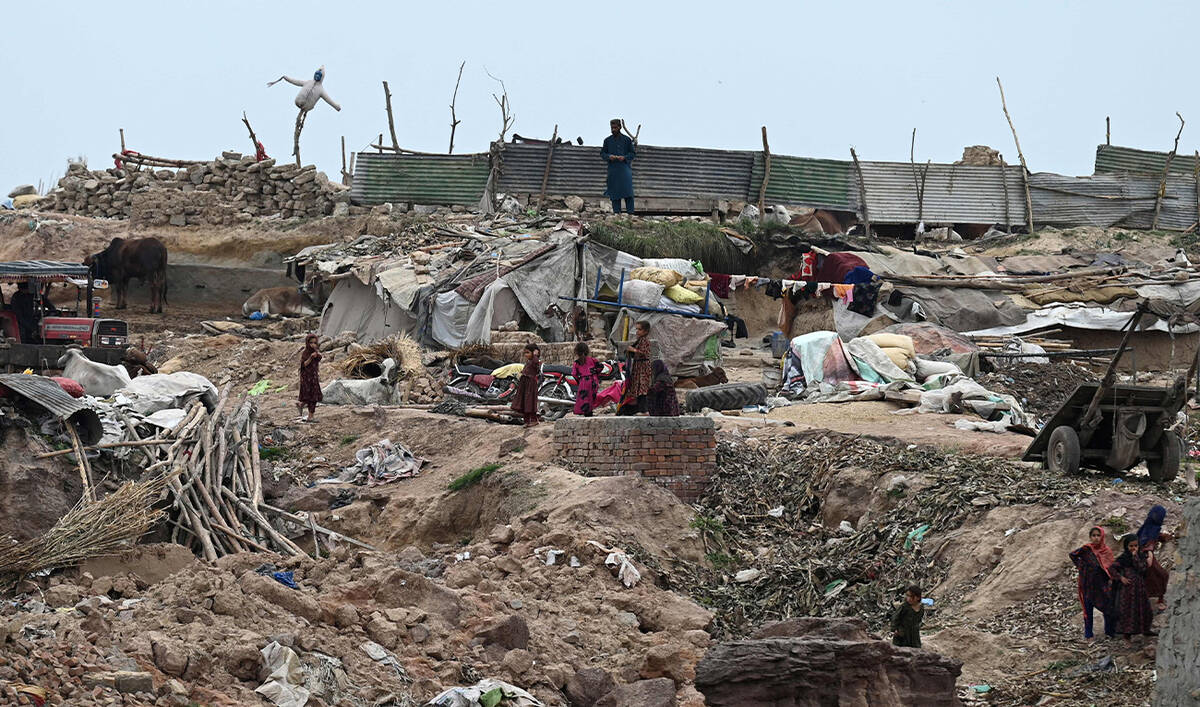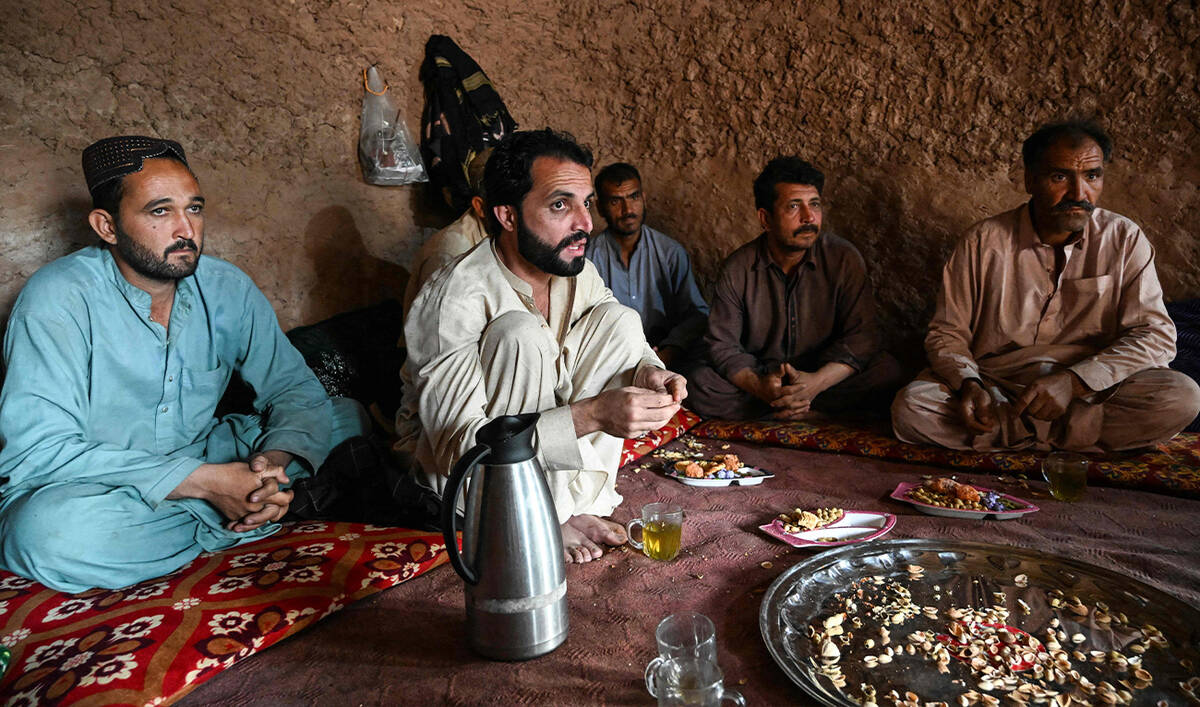KARACHI: International Monetary Fund (IMF) Managing Director Kristalina Georgieva on Monday acknowledged Pakistan’s economic progress, saying the country was moving in the “right direction” by staying the course of IMF-backed structural reforms.
She said this while moderating a panel discussion, titled “A Path for Emerging Market Resilience,” on the second day of AlUla Conference for Emerging Market Economies in Saudi Arabia. The discussion featured Pakistan’s finance minister, Muhammad Aurangzeb, and his counterparts from Türkiye, Brazil and Egypt.
Pakistan, which averted a default in 2023, is currently navigating a path to economic recovery under a $7 billion IMF program and has undertaken several reforms in taxation, energy and others sectors as well as with regard to better management of loss-making state-owned enterprises (SOEs).
Aurangzeb shared the South Asian nation had achieved a primary surplus on the fiscal deficit front with its overall debt-to-GDP ratio having declined to mid-60s from more than 73 percent, thanks to “prudent fiscal management.”
“This is indeed the right trajectory, the right direction to travel and I want to thank you for your dedication to stay the course,” Georgieva said after Aurangzeb detailed his government’s efforts to keep the fiscal and current account deficits in check.
The statement by the IMF chief comes days before the arrival of a team of IMF experts to review Pakistan’s performance under the ongoing loan program. A successful review would lead to the release of around $1 billion to the cash-strapped South Asian nation.
Georgieva lauded Pakistan for “improving the overall performance of the economy” through privatization and trying to reform the loss-making SOEs, especially the government’s failed attempt to sell off its stake in the Pakistan International Airlines (PIA).
“You rightly pointed out the bane of our country has been the twin deficits,” Aurangzeb said, adding that Pakistan’s tax-to-GDP ratio was languishing between 9 percent to 10 percent, the lowest in the region, but the government was able to increase it to 10.8 percent in end-December by mobilizing local resources.
In its 37-month loan agreement with the Washington-based lender, Pakistan has agreed to increase the country’s tax-to-GDP level to 13.5 percent to join the comity of nations and to bring a certain level of sustainability to the primary surplus that it has achieved.
Aurangzeb said his country was working and making “tough policy choices with respect to what is a good cost and bad cost.”
The government of Prime Minister Shehbaz Sharif is trying to rid Pakistan’s economy of the recurring boom-and-bust cycles by enticing overseas Pakistanis to remit their earnings through formal banking channels as well as increasing exports. Pakistan expects worker remittances to rise above $35 billion this year through June.
“If we have to grow sustainably it has to be export-led growth. And we have to change fundamentally the DNA of the economy and we are working toward that,” Aurangzeb said.
“We just need to make sure we make it sustainable as we go forward.”
To a question, the minister said developing economies like Pakistan were relatively in a good place as they had entered 2025 on a “relatively strong note” in terms of market stability, resilience of the banking system, and the bold and structural reforms, which a number of economies were undertaking at this point.
“Therefore, a lot is in our control in terms of staying the course,” Aurangzeb said, adding Pakistan’s recent 10-year agreement with the World Bank Group would allow it to look at the existential issues of population control and climate change.
The use of artificial intelligence (AI) is going to become a huge enabler and game changer for a productivity-led economic growth in Pakistan, according to the finance minister. The use of agri-tech and AI-inspired precision farming will hike crop yields by 5 percent to 20 percent, while AI-powered digital banking and other services have already begun to help increase Pakistan’s IT exports by 25 percent.
“What we need to do is to ensure that the third largest freelancer population in the country gets the requisite resources,” he added.
Pakistan economy moving in ‘right direction’ — IMF chief
https://arab.news/244ej
Pakistan economy moving in ‘right direction’ — IMF chief

- Pakistan, which averted a default in 2023, is currently navigating a path to economic recovery under a $7 billion IMF program
- Finmin says Pakistan has achieved a primary surplus on the fiscal side, with overall debt-to-GDP ratio having declined to mid-60s
Pakistan hands over 35 tons of humanitarian aid to earthquake-hit Myanmar

- The 7.7-magnitude quake hit a wide swath of the country, causing significant damage to six regions and states including the capital Naypyitaw
- It has worsened an already dire humanitarian crisis triggered by the country’s civil war that internally displaced more than 3 million people
ISLAMABAD: Pakistan has handed over 35 tons of emergency relief aid to Myanmar for its earthquake-affected people, Pakistani state media reported on Sunday, as death toll from last week’s massive earthquake in Myanmar neared to 3,500.
The 7.7-magnitude quake hit a wide swath of the country, causing significant damage to six regions and states including the capital Naypyitaw. The earthquake left many areas without power, telephone or cell connections and damaged roads and bridges, making the full extent of the devastation hard to assess.
It also worsened an already dire humanitarian crisis triggered by the country’s civil war that has internally displaced more than 3 million people and left nearly 20 million in need, according to the United Nations.
Pakistan had dispatched the second consignment of humanitarian aid through an air cargo flight from Islamabad to Yangon, Myanmar, according to Pakistan’s Press Information Department (PID).
“Pakistan’s Ambassador to Myanmar Imran Haider officially gave the consignment to Chief Minister of Yangon Region at Yangon International Airport,” the Radio Pakistan broadcaster reported.
“This shipment, comprising 35 tons of goods, brings the total relief assistance dispatched to Myanmar after the recent earthquake to 70 tons.”
The development came as rain compounded misery and presented new hurdles for relief efforts in Myanmar on Sunday. With people either having lost their homes entirely or reluctant to spend time in cracked and unstable structures, many residents have been sleeping outside in tents.
United Nations aid chief Tom Fletcher said in a video filmed in Mandalay, Myanmar’s second largest city, that food, water, and power repairs were needed urgently.
Many people in the area are still without shelter, he said, describing the scale of damage in the city as “epic.”
“We need to get tents and hope to survivors as they rebuild their shattered lives,” Fletcher wrote on X.
Pakistan announces star-studded commentary panel for PSL 10th edition

- Former England Test captain Alastair Cook is set to make his PSL debut behind the mic this season
- The PSL 10th edition will also feature a full-match broadcast in Urdu commentary for the first time
ISLAMABAD: The Pakistan Cricket Board on Sunday announced a star-studded commentary panel for the 10th edition of the Pakistan Super League (PSL) Twenty-20 tournament, with former England Test captain Alastair Cook set to make his PSL debut behind the mic.
The six-team tournament is scheduled to commence from April 11 at the Rawalpindi Cricket Stadium and will conclude on May 18, with the final taking place at the Qaddafi Stadium in Lahore.
The tournament will feature 34 matches in Karachi, Lahore, Multan and Rawalpindi.
“Cook will be joined by former MCC President Mark Nicholas – a renowned voice in cricket commentary since retiring from competitive cricket in 1995,” the PCB said.
“Joining Cook and Nicholas are fellow countrymen Dominic Cork and Mark Butcher, while South Africa’s Jean-Paul Duminy and Mike Haysman will also be part of the panel.”
From Bangladesh, it will be Athar Ali Khan, and he will be joined by New Zealand’s former Test cricketer Martin Guptill. Australia’s two-time ICC Women’s World Cup winner Lisa Sthalekar will also lend her voice to the tournament.
Commentators from Pakistan include four former Test captains, Aamir Sohail, Ramiz Raja, Waqar Younis and Wasim Akram. They will be joined by former Test cricketer Bazid Khan, former Pakistan women’s team captain Urooj Mumtaz and cricket analyst Sikander Bakht.
In a historic move, PSL-10 will also feature a full-match broadcast in Urdu commentary for the first time.
“The Urdu commentary panel includes Ali Younis, Aqeel Samar*, Marina Iqbal*, Salman Butt and Tariq Saeed, who will be joined by the above Pakistan’s commentators for selected segments,” the PCB said.
Erin Holland and Zainab Abbas will be the presenters during the league matches.
“We are excited to welcome a star-studded commentary team, featuring some of the most iconic names in the cricketing world — including legendary former Test captains and top-tier broadcasters. Their involvement not only enhances the quality of our coverage but also highlights the global stature of the HBL PSL,” PSL Chief Executive Officer Salman Naseer said.
“This year, for the first time in HBL PSL history, we will be broadcasting a full match entirely in Urdu commentary – a move that brings us even closer to our passionate fanbase across Pakistan. We are confident that the combination of iconic voices and fresh innovations will enhance the viewing experience for fans at home and around the world.”
Pakistan says killed eight militants infiltrating its border with Afghanistan

- The Pakistani Taliban militants were trying to infiltrate the border in North Waziristan district of Pakistan’s Khyber Pakhtunkhwa province
- Islamabad has frequently blamed the surge in militancy in its western provinces of KP and Balochistan on Afghanistan, Kabul denies the charge
ISLAMABAD: Pakistani security forces have killed eight Pakistani Taliban militants who were attempting to infiltrate the country’s border with Afghanistan in the northwestern Khyber Pakhtunkhwa province, the Pakistani military said on Sunday.
Pakistan has struggled to contain a surge in militancy in the country, particularly in KP, since a fragile truce between the Pakistani Taliban, or the Tehreek-e-Taliban Pakistan (TTP), and Islamabad broke down in November 2022.
The TTP and other militant groups have frequently targeted security forces convoys and check-posts, besides targeted killings and kidnappings of law enforcers and government officials in recent months.
In the latest incident, security forces had an intense exchange of fire with the group of militants who attempted to infiltrate the border in KP’s North Waziristan district, according to the Inter-Services Public Relations (ISPR), the Pakistani military’s media wing.
“Sanitization operation is being conducted to eliminate any other Kharji [TTP militant] found in the area,” the ISPR said in a statement.
The North Waziristan district, which borders Afghanistan, had been a stronghold of the TTP before successive military operations drove the militants out of the region more than a decade ago. Pakistan says TTP fighters have regrouped in the restive region in recent years.
Islamabad has frequently blamed the surge in militancy in its western provinces of KP and Balochistan on Afghanistan, accusing Kabul of sheltering and supporting militant groups that launch cross-border attacks. Afghan officials deny involvement and insist that Pakistan’s security issues are an internal matter of Islamabad.
“Pakistan has consistently been asking interim Afghan government to ensure effective border management on their side of the border,” the ISPR said.
“Interim Afghan government is expected to fulfil its obligations and deny the use of Afghan soil by Khwarij for perpetuating acts of terrorism against Pakistan.”
Pakistan seeks ‘comprehensive’ partnership with Russia in energy, agriculture and IT sectors

- Pakistan and Russia, once Cold War rivals, have strengthened ties in recent years through increased dialogue and trade cooperation
- Senate Chairman Gilani expresses Pakistan’s support for Russia’s role in promoting regional stability, multipolar global governance
ISLAMABAD: Pakistan seeks a “comprehensive” partnership with Russian in energy, agriculture, information technology (IT) and other sectors, Pakistan’s Senate Secretariat said on Sunday, citing Senate Chairman Yousuf Raza Gilani.
The statement followed Gilani’s meeting with Valentina Matviyenko, chairwoman of the Federation Council of the Russian Federation, on the sidelines of the 150th Inter-Parliamentary Union (IPU) Assembly in Tashkent.
Gilani highlighted the shared aspirations of both nations for peace, security and multipolarity in global affairs, and emphasized the increasingly broad-based cooperation across various sectors and multilateral platforms.
“Both sides discussed diversifying economic ties in areas such as energy, agriculture, pharmaceuticals, and IT. Chairman Gilani advocated for the establishment of banking channels and improved connectivity under regional frameworks,” the Senate Secretariat said in a statement.
“Chairman Gilani concluded by reaffirming Pakistan’s readiness to work with Russia toward a comprehensive, forward-looking partnership and extended an invitation for future parliamentary exchanges in Islamabad.”
Pakistan and Russia, once Cold War rivals, have strengthened ties in recent years through increased dialogue and trade. In 2023, Islamabad began purchasing discounted Russian crude oil banned from European markets due to Russia’s war in Ukraine, and also received its first shipment of liquefied petroleum gas from Moscow.
In December last year, Russia and Pakistan held intergovernmental meetings in Moscow and discussed cooperation on oil and gas offshore exploration and refining, according to a Reuters news agency report. Russian Ambassador to Pakistan Albert P. Khorev this year announced cooperation with Pakistan in the energy and industrial sectors, including the modernization of a state-owned steel mill.
Gilani expressed Pakistan’s support for Russia’s role in promoting regional stability and multipolar global governance, according to the Senate Secretariat.
“Both sides emphasized the importance of coordinated efforts in forums like the SCO (Shanghai Cooperation Organization) and UN (United Nations), particularly regarding climate action, food security, and counter-narcotics,” it added.
‘No one to return to’: Afghans fear Pakistan deportation

- Islamabad announced at the start of March that 800,000 Afghan Citizen Cards would be canceled
- The deportation program has already forced 800,000 undocumented Afghans across the border
Rawalpindi: Benazir Raufi stands alone in her restaurant, her staff and customers too afraid to visit after Pakistan’s government announced it was canceling the residence permits of hundreds of thousands of Afghans.
Islamabad announced at the start of March that 800,000 Afghan Citizen Cards (ACC) would be canceled — the second phase of a deportation program which has already forced 800,000 undocumented Afghans across the border.
“If I’m deported, it will destroy me. Either my heart will stop, or I’ll take my own life,” 45-year-old Raufi, who was 13 years old when her family fled civil war in Afghanistan in the 1990s, told AFP.
“Pakistan gave us our smile and now those smiles are being taken away.”

Ten Afghan women who worked for her have refused to leave home after the restaurant in Rawalpindi was raided by police — facing deportation to a country where women are banned from studying, certain jobs and visiting some public places like parks.
“I have no one to return to. The Taliban won’t accept us,” Raufi added, her voice cracking.
The government’s deadline for ACC holders to leave voluntarily has been pushed back to April, but harassment by authorities has been underway for months, according to activists.
Those born in Pakistan, married to Pakistanis, or living for decades in the country are among those to have their government residence permits canceled.
The deportation campaign comes as political ties between the neighboring governments have soured over Pakistan’s rapidly deteriorating security situation along the border.
Last year was the deadliest year in almost a decade in Pakistan, with more than 1,600 people killed in attacks — nearly half of them security forces personnel — according to the Islamabad-based Center for Research and Security Studies.
Pakistan accuses the Taliban government of failing to root out militants sheltering on Afghan soil, a charge the Taliban government denies.
The Taliban government has repeatedly called for the “dignified” return of Afghans to their country, with Prime Minister Hassan Akhund urging countries hosting Afghans not to force them out.

“I have freedom (in Pakistan) — I can visit the park, and my daughter can go to school,” Dua Safay, who fled when the Taliban government returned to power in 2021.
“There’s no future for me or my daughter in Afghanistan,” added Safay, whose real name has been changed.
Some 600,000 Afghans have crossed the border into Pakistan since the Taliban government implemented their austere version of Islamic law.
“They will be sent back to a country where conditions are extremely harsh, especially for women and children,” according to Moniza Kakar, a Pakistan-based human rights lawyer.
“These people fled to escape persecution. Forcing them back into that fire is a violation of international law.”
Millions of Afghans have traveled to Pakistan over the past four decades, fleeing successive conflicts including the Soviet invasion, a civil war and the post-9/11 US-led occupation.
The ethnic Pashtun belt of Khyber Pakhtunkhwa which borders Afghanistan shares close cultural and linguistic ties with Afghan Pashtuns.

Around 1.3 million Afghans with resident cards issued by the UN Refugee Agency (UNHCR) are allowed to remain in the country but have been banned from the cities of Islamabad and Rawalpindi.
“Over 1,000 people have been moved to detention centers in the past three to four days, while thousands are leaving voluntarily all over Pakistan,” Kakar added.
Many families fear being mistreated or extorted for money by the authorities if they are detained, or of being separated from relatives.
“If I have to go, I’ll go in tears, with a broken heart,” said 43-year-old Naimatullah, who was born in Pakistan and has never been to Afghanistan.
“They (people) won’t even see me as an Afghan — they’ll call me Pakistani. I am a nobody.”
After the deadline, Samiullah, who was born in an Afghan refugee camp in Pakistan and is married to a Pakistani woman, will be considered an illegal foreigner.
“My wife will not be able to go with me, my daughters are from here. It is a constant struggle. I can’t get caught,” the 29-year-old told AFP.

Tens of thousands of Afghans living in Pakistan who are waiting to be relocated to Western nations also fear being deported.
Most are advised by Western nations to cross into Pakistan where their asylum claims take months to be processed.
Among them is Samia Hamza, a 31-year-old women’s rights activist and mother of four, currently in the northwestern city of Peshawar.
“They gave us a support letter but the Pakistani police does not recognize it,” she told AFP.
“We need to stay one more month in Pakistan, then we will receive our visa to Brazil and leave.”









